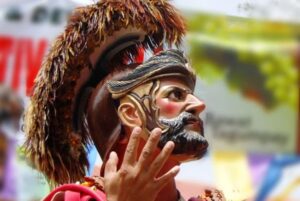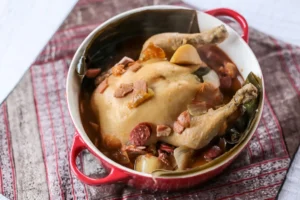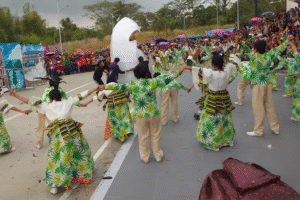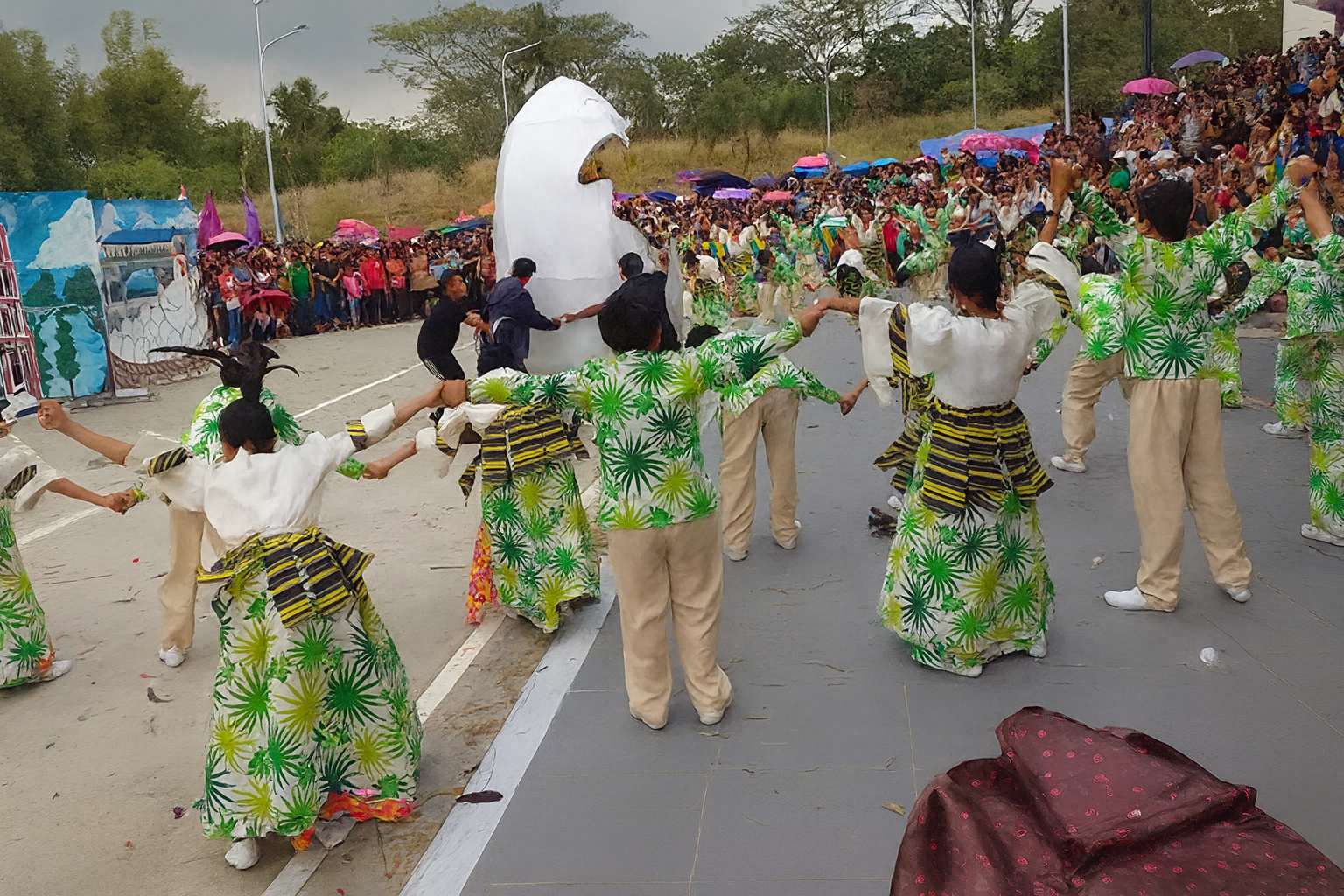
Historical Significance
The Kinulob Festival, celebrated every April in the coastal municipality of Mabini, Batangas, is more than just a culinary showcase — it is a tribute to the town’s roots, livelihood, and enduring sense of community. Established in 2002, the festival was created to honor and give recognition to the local native chicken raisers, whose dedication has long sustained Mabini’s economy and culture. Poultry farming remains a key source of livelihood in the town, making chickens and eggs a familiar and abundant sight across its barangays.
Mabini itself holds a rich historical and cultural identity. Founded on January 1, 1918, by Captain Francisco Castillo, the town was named in honor of Apolinario Mabini, the revered “Brains of the Revolution” and the first Prime Minister of the Philippines. The town stands as a living tribute to his legacy of patriotism, intellect, and service to the nation. Nestled along the Calumpan Peninsula, where the land meets the sea, Mabini has evolved from an agricultural and fishing community into a well-known coastal destination — all while preserving the traditions that define its people.
Within this historical and geographical context, the Kinulob Festival represents both gratitude and continuity — a celebration that connects present-day Mabini to its agricultural beginnings, paying homage to the hardworking poultry raisers who helped shape the town’s progress.
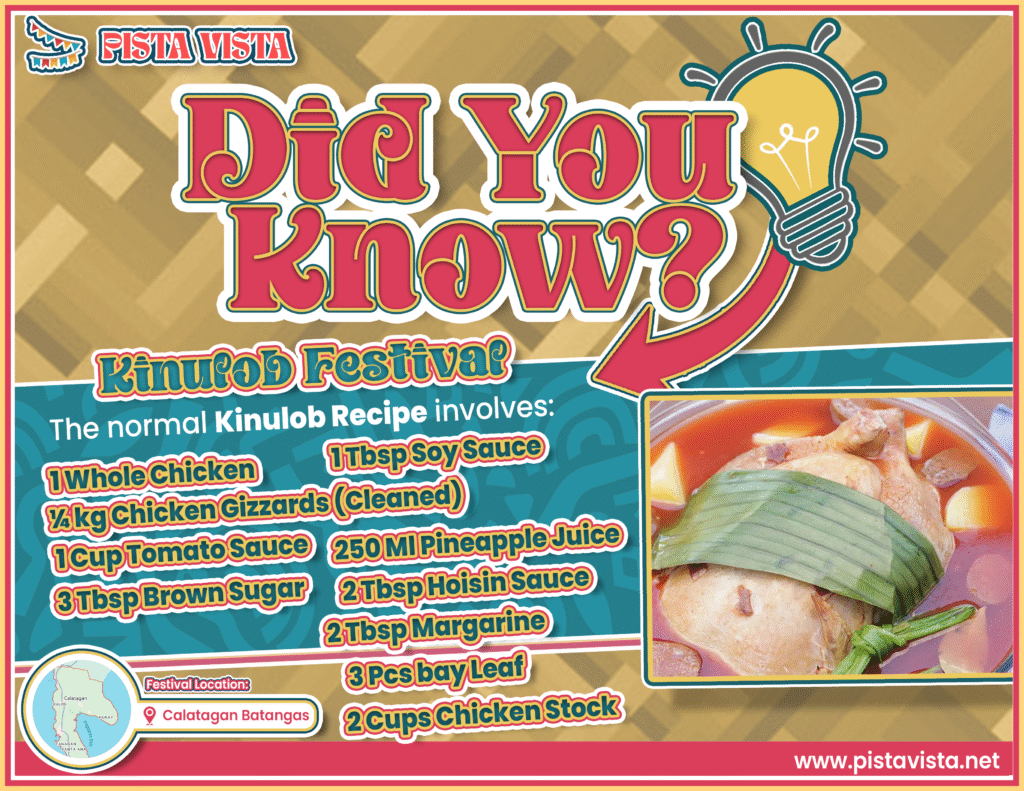
Unique Traditions
At the heart of the celebration lies the dish that gives the festival its name: “kinulob na manok.” Unlike more familiar Filipino chicken dishes such as adobo, tinola, or inihaw, kinulob is a distinctive way of cooking whole chicken — boiled in a tightly sealed tin container over blazing charcoal, with onion, tomato, sausage, soy sauce, peppercorn, and a pinch of salt. The result is a dish that combines simplicity with rich aroma and flavor, reflecting the character of Mabini itself: humble in form but full of substance.
Every April, the town comes alive with color and festivity. Residents gather for parades, street dancing, and cultural presentations, often donning chicken-inspired costumes to celebrate their local pride. A highlight of the parade is the float featuring a dressed-up chicken prepared in the kinulob style — a playful yet meaningful nod to the festival’s theme. Each barangay presents its own dance number, creating an atmosphere of friendly competition and joy as performers aim to outshine one another, much to the delight of spectators.
Beyond the parades, the festival features a range of community activities: mini band exhibitions, food fairs, trade shows, and the Mutya ng Mabini pageant. The enticing scent of kinulob na manok fills the air, mingling with laughter, music, and applause — a sensory experience that captures the warmth of Mabini’s people and the pride they take in their local traditions.
Video from kyleandrae
Cultural Impact
Over the years, the Kinulob Festival has become a vibrant reflection of Mabini’s identity — a town that values its roots while embracing change. By highlighting the role of poultry raisers, the festival acknowledges the everyday heroes who contribute to the community’s growth and prosperity. It celebrates not just their labor, but their knowledge and dedication, which keep local culinary traditions alive in a rapidly modernizing world.
The festival also strengthens communal ties. From farmers to fishermen, students to business owners, the people of Mabini come together in shared celebration, reinforcing a collective sense of pride. It is a time when the town’s coastal beauty, culinary heritage, and cultural spirit converge — a living reminder that even the simplest traditions can define and unite a community.
For visitors, the Kinulob Festival offers more than a taste of local cuisine; it offers a glimpse into Mabini’s soul — a blend of gratitude, craftsmanship, and community spirit. And for the people of Mabini, it remains an annual promise: to honor their roots, celebrate their labor, and continue cooking up traditions that nourish both body and identity.

